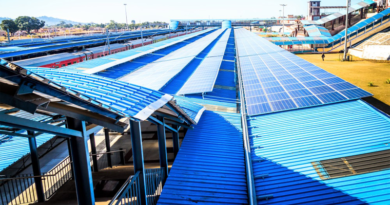Coal, And Germany’s Fall from Grace.
 Not a Good Colour For German Image
Not a Good Colour For German Image
Germany’s latest announcement, that it would be investing $44.5 billion to wean itself off coal, by 2038, has kicked off the expected storm of criticism. And for once, critics have some data behind them. For instance, its 2038 deadline puts it comfortably behind many European neighbours, including large countries like France, in its coal plans. With a majority of the members of the 28 country EU planning to achieve the same phase out by 2030 or so, Germany’s laggard behaviour has its share of sympathisers too, particularly its Eastern European neighbours like Poland, who face a similar predicament of high coal deposits, and very little gas, for instance.
But there are aspects where the country is clearly taking steps that are strange to outsiders. Like closing the last of its zero emission nuclear energy plants by 2022, thanks to a mismanaged perception problem around nuclear energy after the Fukushima disaster of 2011 in Japan. For perspective, consider India, which hopes to OPEN a new nuclear plant every year for the next seven years. Mainly to fight its own addiction to coal, which accounts for almost 70% of power generation even today.
For Germany, the new stubbornness to resist is almost understandable. After all, the country ploughed almost a lone furrow from the late 20th century till recently, with massive subsidies totally over 225 billion dollars for renewables. After all that, the share of renewables is still under 30 percent today . The money certainly helped push along the industry to more efficiency globally, by providing both a market and the funding for more research. But when it came to the time to harvest those investments, Germany found that China has grabbed the opportunity, in true Chinese style. Massive government backing, even bigger subsidies initially , and a much larger market ensured that Chinese firms grabbed the manufacturing opportunity in solar, leaving many in German industry chafing at the unfairness of it all. Today, the last few remaining German firms in the sector, still renowned and prized for their legacy of cutting edge research, all have their manufacturing plants in China, if at all.
Today, when the renewables sector is increasingly growing without subsidies, there is almost a backlash against renewables, for failing to deliver on their promise for Germany in the country. And a determination to place economic interests ahead.
What the new 2038 target does is provide cover to other big coal consuming countries like India and China. At the no. 1 and no.3 rank respectively, of global emitters of Co2, both these countries will cite the German example to point to just how difficult it is for them to get off coal. For India especially, which is still building new coal plants, forget retiring old ones, being in the company of Germany should be cold comfort. Because like the Germans, the country shares all the challenges Germany faces, in the form of a massive public sector controlled sector, millions of dependents on the industry and more. But unlike Germany, it may not quite have the money to pay off everyone when the time comes.
China of course, in typical style, hopes to stop building domestically, but continues to build plants abroad, to fill the space left behind by western firms that face massive pressure from association with the polluting fuel.




